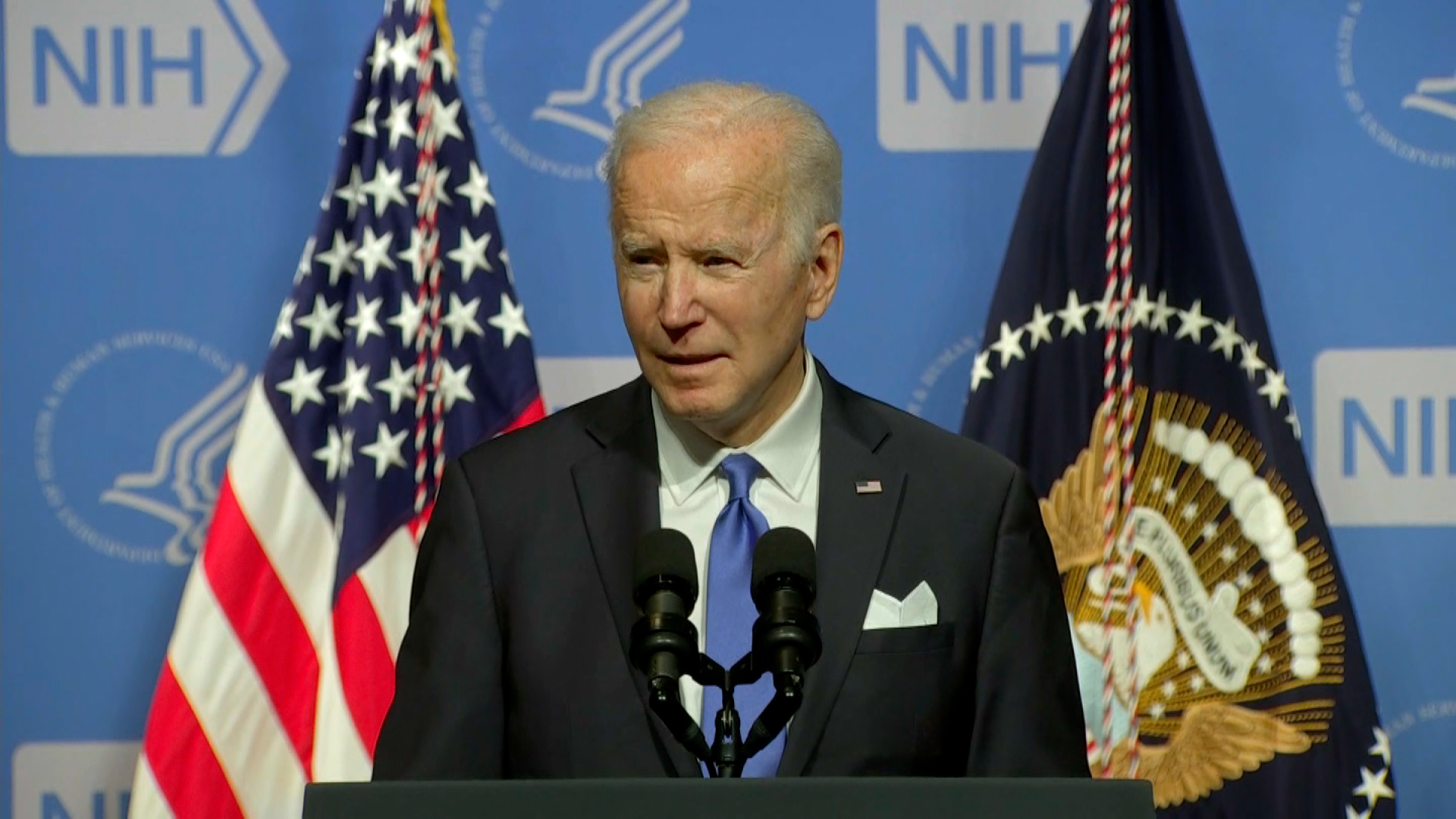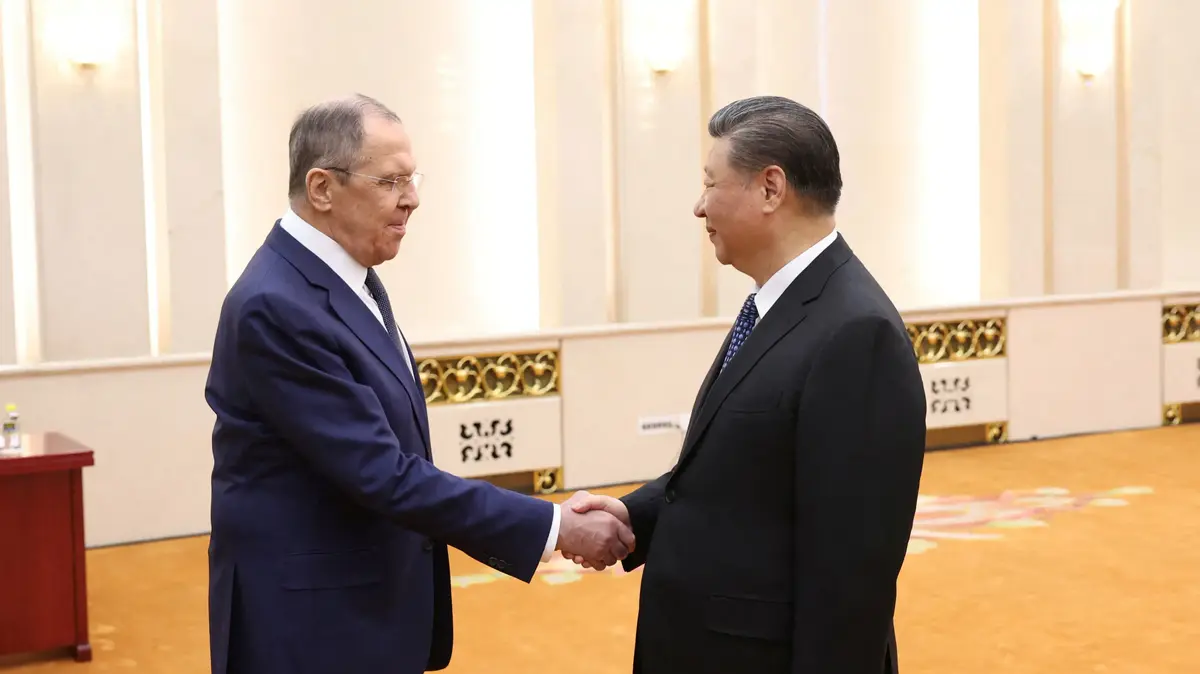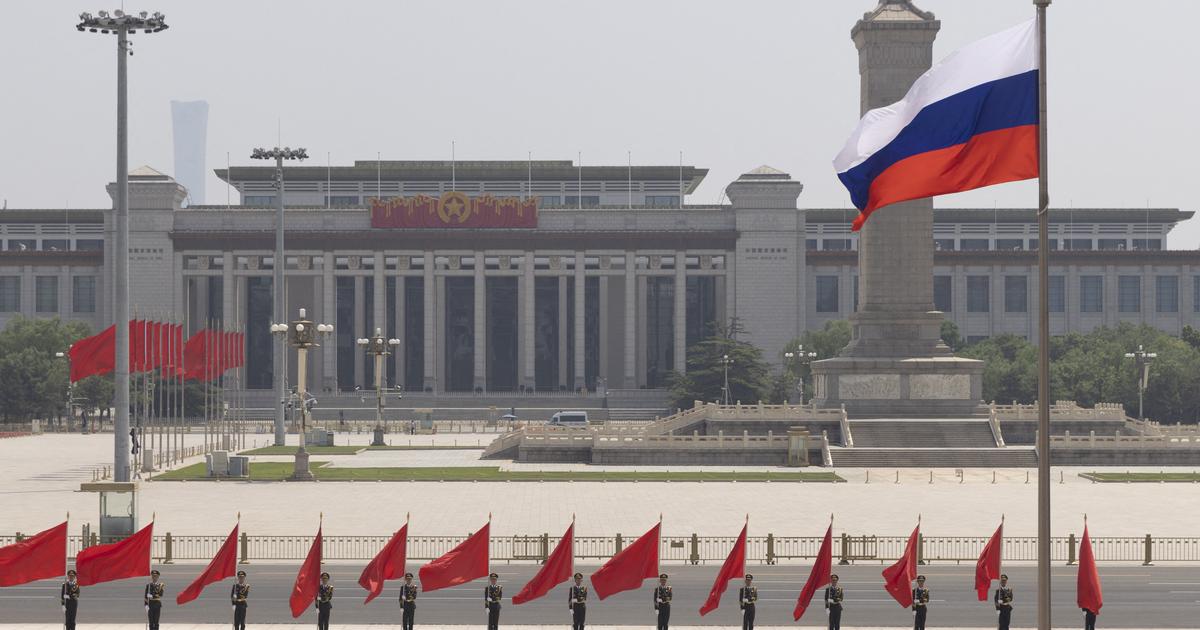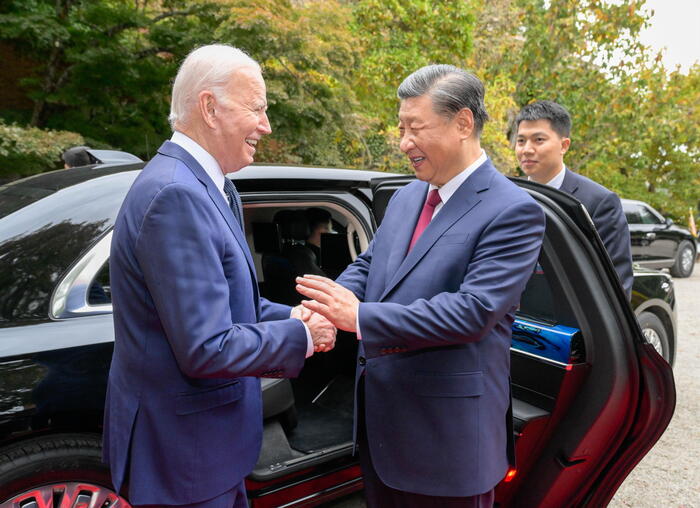Biden marks 80th anniversary of the attack on Pearl Harbor 2:52
(CNN) -
US President Joe Biden this week faced escalating tensions with China and Russia, testing his ability to handle antagonistic leaders and forcing other countries to take sides.
In the past two days, Biden's White House announced that US diplomats would boycott the 2022 Winter Olympics in China and the president held a video call with Vladimir Putin in which he made it clear that the United States is willing to impose economic sanctions on should Moscow intensify military actions in Ukraine.
What did Biden and Putin speak at their virtual summit?
US reiterates warning to Russia on Ukraine
"One nation cannot force another to change its border; one nation cannot tell another to change its policy; and nations cannot tell others who they can work with," Biden told the Russian leader, according to an official familiar with the conversation.
Two days later, Biden will convene a summit on democracy conceived as a show of force against authoritarian regimes, hoping to defend democracy while pressing his allies to take a tougher line against countries like Russia and China.
What is the key to the success of the new infrastructure plan?
1:42
The events of the week exposed the cross-currents of Biden's foreign policy: isolating undemocratic regimes while trying to compromise their leaders.
It's a balancing act that crystallizes the competition that Biden sees as defines the rest of the 21st century - democracy versus autocracy - while also showing some echoes of the previous century.
advertising
When the White House announced this week that no US official would attend the upcoming Winter Olympics in Beijing, officials were hesitant to call the decision a "boycott," fearful of drawing parallels with Jimmy Carter's 1980 measure, which prevented even American athletes participate in the games in Moscow, in the middle of the Cold War.
Comparison to that long stretch of frigid competition between superpowers is unwelcome in the Biden administration, which downplays those similarities to current global threats.
Biden himself told the United Nations earlier this year that he did not intend to divide the world into "rigid blocs", although he repeatedly describes an existential battle between democracies and autocracies.
Talking to leaders like China's Putin and Xi Jinping, while trying to convince allies to form a united front against them, proved to be an enduring element of Biden-era foreign policy as it tries to prevent them from worsening relations with Russia and China lead to open conflict.
The White House insists that Thursday's democracy summit is not intended to be a challenge to any particular country or leader, although some seem to interpret it that way.
What did Biden and Putin speak at their virtual summit?
This is what we know 2:10
Yet the guest list - which includes Taiwan - has already drawn the ire of China, which insists it is also a democracy.
"We believe that the objectives of the summit go far beyond any government," a senior administration official said Tuesday at the meeting's presentation. "The summit is truly meant to bring together a diverse group of participants to build a shared foundation for democratic renewal, and we believe it is a strong story to tell."
Originally conceived when he was a candidate in hopes of rebutting then-President Donald Trump's approach to authoritarian world leaders, the meeting will focus on three pillars: strengthening democracy and defending against authoritarianism, fighting corruption and promoting respect for human rights, officials said. They explained that the guest list - which includes some countries with poor human rights records, such as Pakistan - was designed to highlight democracy at all levels of society, not just in the national government.
During the summit, Biden will not shy away from recognition of recent struggles by the United States in defense of its own democracy, according to officials involved in planning the event, who cited Biden's past criticism of Trump's false allegations of fraud. widespread electoral as something he could repeat during his two appearances in the virtual meeting.
Here's how China responds to the housing slump 0:54
"The President was absolutely clear that protecting the constitutional rights of Americans and the integrity of our elections from the systematic assault that people - Republican lawmakers in particular - have carried out across the country is a necessity, and that this historic threat requires strong legislation on the right to vote. And the president will say it again this week, "said an official.
Democracy versus autocracy
Proving that democracy is more effective than autocracy has been the foundation of all of Biden's foreign policy and the main theme of his two trips abroad thus far.
However, sour domestic politics and persistent inequality prompted countries like Russia and China to criticize American-style democracy as flawed, seeking to undermine Biden in his efforts to unite the world against authoritarianism.
China's State Council published a document titled "China: Democracy That Works" over the weekend, despite the fact that the country does not hold elections for its leaders and bans opposition political parties.
Putin, for his part, claimed that the arrest of the rioters implicated in the January 6 insurrection attempt on the United States Capitol amounts to a crackdown on dissent, adopting an argument used by Republicans who defended the event as a peaceful protest.
Presidents Putin and Xi are men with whom Biden shares a long history, although each of them has shown a constant drift toward authoritarianism since Biden held meetings when he was vice president.
China rejects US boycott of Winter Olympics 0:40
Initiating a two-hour, one-minute phone call with Putin on Tuesday, arranged to warn him of dire economic consequences should he go ahead with an invasion of Ukraine, Biden made it clear that he wanted to see the Russian leader again soon.
"I hope the next time we meet we will meet in person," Biden told Putin at the beginning of the talks, with Biden sitting in the basement of the White House crisis room and with Putin watching from his dacha in the Black Sea.
The conversation got more serious from there, according to the officials, who said Biden explained in clear terms what could happen if Putin decided to go ahead with an invasion, including possible sanctions on members of Putin's inner circle and the deployment. additional US troops in NATO member countries.
"It was a useful meeting," Biden's National Security adviser Jake Sullivan later said, stating that Biden has warned Putin that he is willing to take steps that the United States previously avoided if he decides to go ahead with an invasion.
"The things we did not do in 2014, we are prepared to do now," Biden told Putin, according to Sullivan.
This is a remarkable message considering Biden's own recommendations when he was vice president to then-President Barack Obama that the United States increase lethal aid to Ukraine and force severe economic pain on Russia, measures that met with resistance from other government officials. the administration.
Gather the free world
Now, Biden says he's ready to go further.
If enforced, the sanctions are likely to go after key Russian oligarchs, limiting their ability to travel and potentially cutting off access to US banking and credit card systems.
Officials also weighed the possibility of disconnecting Russia from the international SWIFT payments system, on which Russia remains heavily dependent, a "nuclear" option that would cause serious economic damage.
Biden spent the afternoon before his call working to convince European leaders to join him in threatening withering economic sanctions on Russia should Putin decide to invade Ukraine, despite fears the Russian president could cut supplies. gas to Europe as the weather turns colder.
In recent weeks, US and foreign officials have also discussed the possibility of a collective diplomatic boycott of the Beijing Olympics, though as of Wednesday, only Australia joined the United States in announcing one.
Just three weeks ago, Biden convened a lengthy virtual summit with Xi with the intention of bringing a sense of predictability to an otherwise rocky relationship between Washington and Beijing.
Officials said the Olympics topic did not come up.
Early in Biden's presidency, there were signs that diplomacy with Russia and China was going to be a difficult task.
Over the course of a week in March, Biden drew Putin's ire by calling him a "murderer" in an interview, while in Alaska some of his top diplomats openly argued with their Chinese counterparts on camera.
Since then, Biden and his team have struggled to bring relations with Russia and China to more predictable terrain, including hosting summits between Biden and their leaders.
The difficulties of this approach are also becoming apparent.
Six months after his guarded face-to-face summit with Putin in Geneva - whose success, he later said, could only be discerned within six months - he is working to prevent a possible Russian invasion of Ukraine.
With information from Kaitlan Collins.
ChinaUnited StatesJoe Biden







